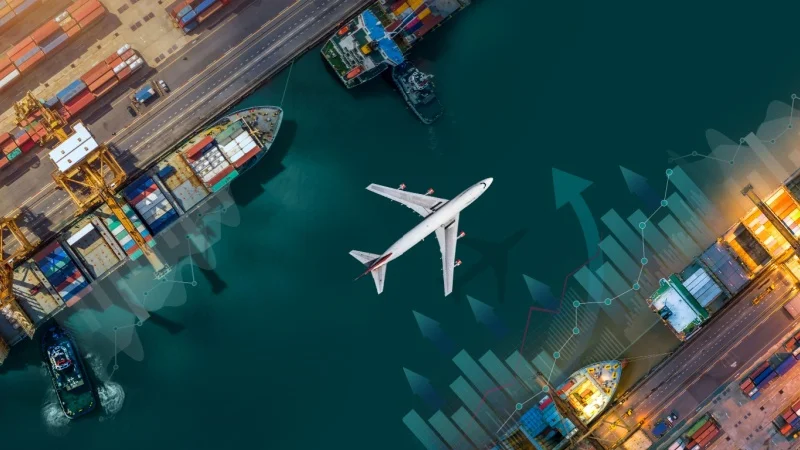Managing domestic product transport is challenging enough, but shipping cargo internationally introduces even greater complexity. Importing and exporting involves numerous rules, regulations, security protocols, and extensive documentation, which can be daunting. Ensuring timely delivery, safety, and security of the cargo adds another layer of difficulty. A single mistake can delay the shipment by weeks or months of effort and potentially result in significant financial losses. Selecting a reliable cargo shipping service provider will help you handle all the tasks from packing to shipping valuables by maintaining smooth functioning in the cargo supply chain.
Bridging the Gaps While Shipping Cargo Internationally
Shipping cargo internationally involves moving goods across borders using different transportation methods, such as ships, planes, trucks, and trains. This process requires meticulous logistics coordination, customs clearance, and adherence to regulations to guarantee timely and secure delivery. It also includes managing international shipping services, understanding freight rates, and effectively handling shipping costs. Selecting the appropriate method for international shipping is essential for both efficiency and cost-effectiveness. The primary options for international freight are air freight and ocean freight.
5 Best Tips to Ship Your Valuables in a Cost-effective Way
Shipping valuable items can be costly and complex, but with careful planning, you can manage expenses effectively. It is crucial to understand the various shipping options available, from insurance and packaging to choosing the ideal transportation method to achieve cost-effective shipping for your valuables. Let us find the best tips to reduce the shipping costs involved in international freight shipping.
- Pay for the Speed and Certainty You Need: The speed at which your product is shipped significantly affects the cost. Air freight is considerably more expensive than ocean freight, and within a given freight class, faster shipping incurs higher charges. When obtaining a shipping quote, consider transit time, customs brokerage fees, and other shipping options to evaluate their cost impact on your revenue. Moreover, a flexible delivery window is more economical than a strict deadline for international container shipping.
- Optimize Volume & Weight: Weight significantly influences transportation costs, particularly for air freight, as it directly affects fuel consumption. If you plan to ship by air, minimizing your product’s weight should be a key design consideration. Packaging plays a crucial role in determining weight once your product is designed by maintaining air cargo safety. When choosing materials for securing your product, consider the impact on weight and shipping costs. Opting for lighter packaging materials that still ensure product protection during transit can have a substantial effect on your overall costs.
- Proper Documentation: Encountering delays in customs when crossing international borders can be costly in terms of time and additional fees if your documentation is incorrect. Ensure your bill of lading and commercial invoice are accurate and complete. Mistakes or omissions in customs documentation can lead to extra costs and delays, so carefully verify addresses, dates, and contact details. Moreover, the classification of your product under the harmonized tariff schedule can significantly impact your export and import tariff costs. Proper documentation facilitates efficient movement through every stage of international freight shipping, including cargo clearance procedures.
- Reduction of Damage & Loss: The costs associated with damaged or missing goods in international freight shipping are often underestimated. Expenses for disposing of or repairing products can accumulate quickly. It is essential that both your product and its packaging are designed to endure various impacts and occasional drops they may experience during transit. When shipping hazardous materials, even more rigorous precautions are necessary to prevent damage and ensure safety. Adhering to all required protocols for handling hazardous materials is crucial for avoiding accidents and potential losses while shipping containers overseas.
- Look for Multiple Quotes: The international freight shipping industry is highly competitive, with small suppliers often managing only part of the process; large multinational corporations oversee the entire logistics chain. It is advisable to request quotes from several logistics providers and explore different options for speed and delivery windows to find the most cost-effective solution to secure the best freight rates. When seeking quotes from an international air freight forwarder, you should provide accurate estimates of your shipment’s volume and weight. Ensure to account for all potential charges, including customs clearance and extra services.
Navigating the complexities of shipping cargo internationally requires a thorough understanding of various factors, including shipping methods, packaging strategies, and compliance with global regulations. You can optimize your shipping process to balance cost and efficiency by carefully managing these elements and seeking competitive quotes. Ensuring accurate documentation and leveraging effective packaging solutions will minimize risks of damage and delays while staying informed about tariffs and customs requirements will help avoid unexpected expenses. With strategic planning and attention to detail, you can streamline your international shipping operations, enhancing overall performance and reducing costs through Travelite.










